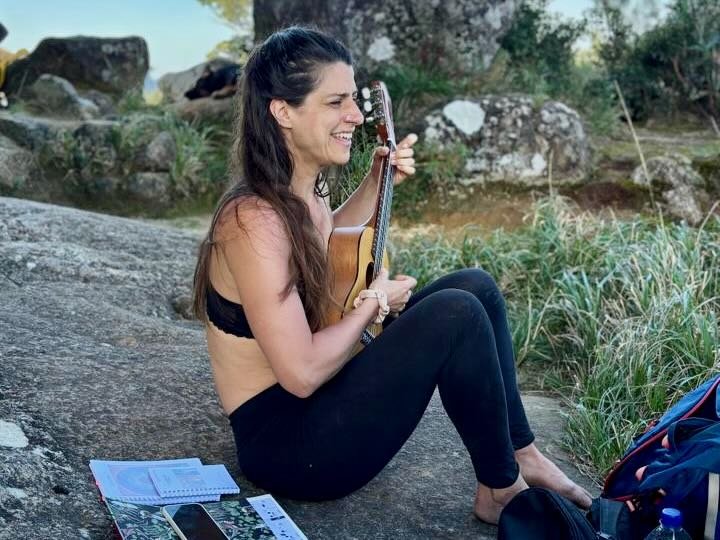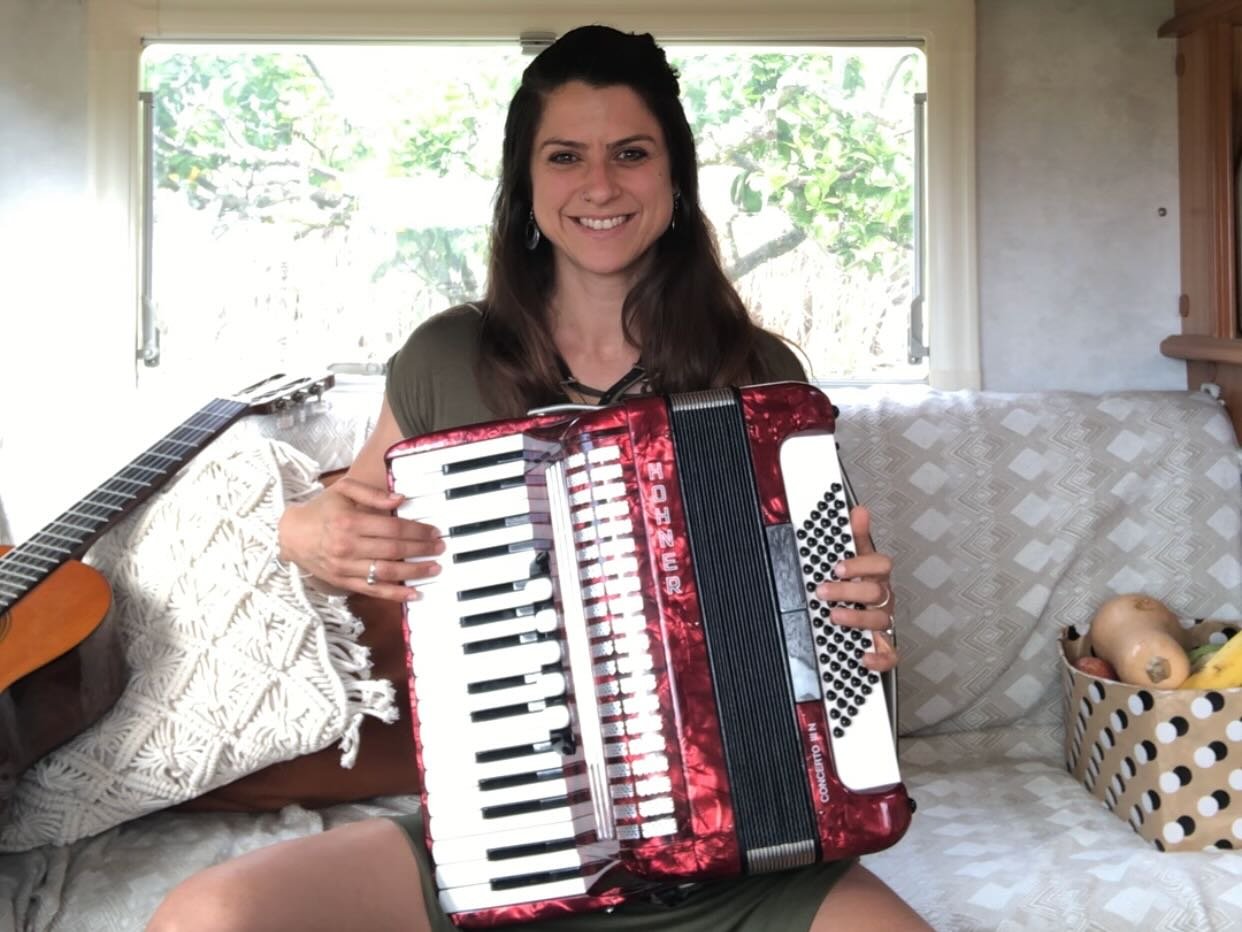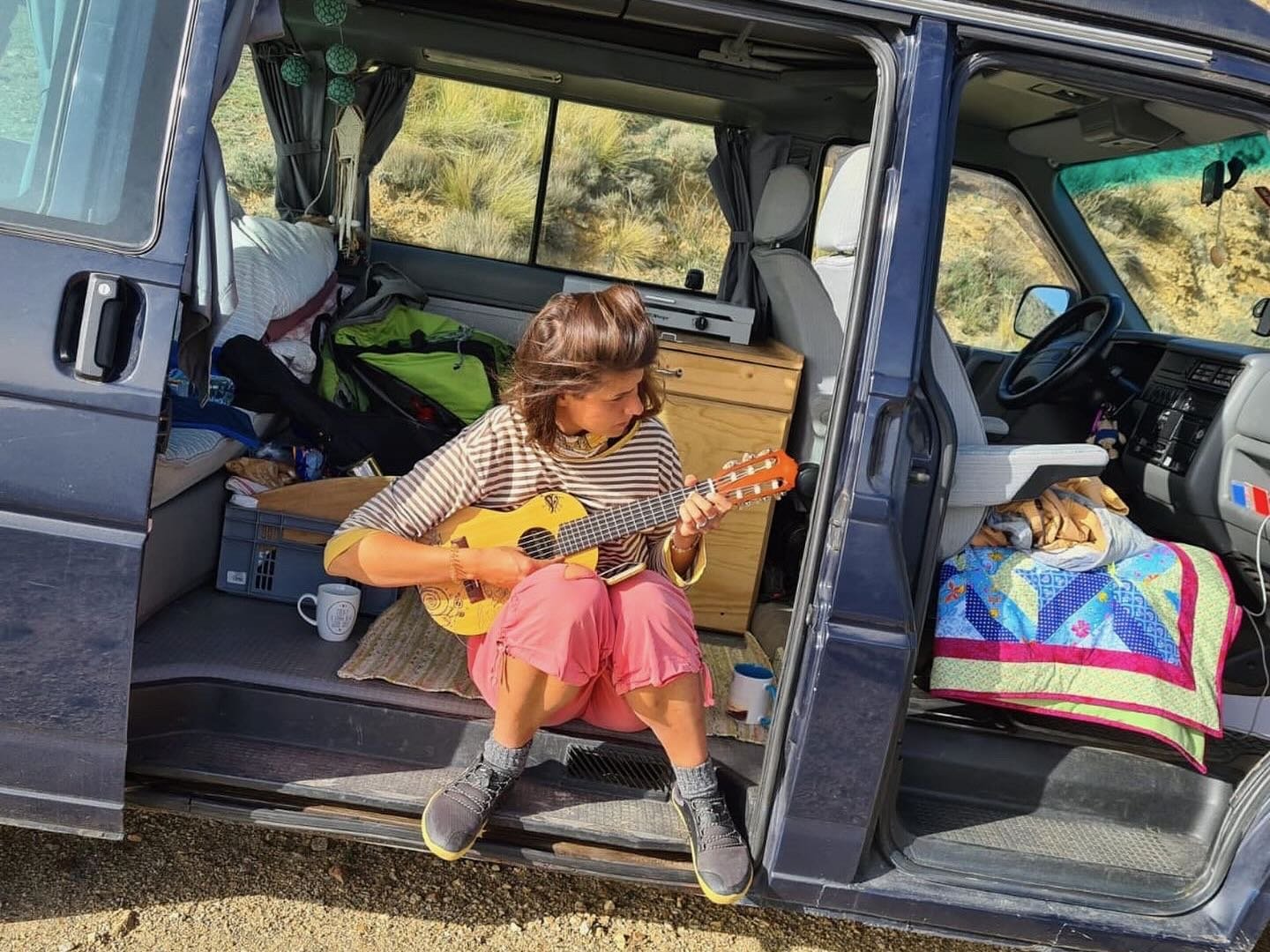Why Playing in Public is Key to Your Growth as a Musician
There’s a unique vulnerability that comes with playing music in front of others. It’s one thing to play in the privacy of your home, where there’s no one to judge your mistakes or witness your imperfections. It’s a completely different story when you’re out in the open, sharing your music with others, even if you don’t feel ready.
The idea of exposing yourself as a beginner – or even just imperfect – can feel terrifying, but this very act holds the key to unlocking growth and self-acceptance. Learning to play in public, even when you don’t feel fully prepared, is a powerful step toward becoming not just a better musician, but a more confident and authentic one.
My Own Struggle with Playing in Public
A few years ago, when I met my last partner, I noticed something interesting about my vulnerability. We shared deep conversations about finances, family, and even past relationships without hesitation. But when it came to sharing my music, I felt this wall go up inside me. He knew I was a musician – he would gently nudge me, saying, "Sarah, you're a musician. How come I haven't heard you play anything?" But instead of grabbing my guitar, I found myself postponing, feeling too exposed.
Music is deeply personal for me. It’s the space where my soul speaks, and in those first weeks of our relationship, I found myself in an inner conflict. I wanted to share this important part of myself with him, but I didn’t feel ready. Music was something so intimate, and the idea of him hearing me make mistakes, stumble through a song, or improvise felt too vulnerable.
It took me time – months, actually – to build the trust and confidence in myself to play openly in front of him. I felt as though I was protecting this part of me from judgment, but in reality, I was holding myself back. I was worried my playing would annoy him, that I wasn’t good enough yet to be seen. And honestly, there was a deep sense of cringe about fumbling through songs that were far from polished. But what I eventually realized was that playing in front of people, who are dear to us, is an essential part of growth, both as a musician and as a person.
THE ALCHEMY OF MUSIC
Being a beginner is your entry ticket to mastery. The sooner you embrace being seen as a beginner, the faster you’ll grow.
The First Ego Death of a Musician: Accepting the Beginner Phase
If there’s one thing I’ve learned, it’s this: being a beginner is your entry ticket to mastery. Every master was once a beginner, and the only way to improve is by being willing to look like a fool in the process. No one starts off as a virtuoso. It’s okay to hit the wrong note, miss the timing, or forget the lyrics – it’s part of the journey. But you can’t get to the next level if you’re too afraid to let others see you in the early stages.
In the beginning, I worried about what others would think. I didn’t want to be that person on the beach, playing medicine songs while people silently rolled their eyes or thought I was “too hippie.” But the truth is, you have to get over yourself. If you want to grow as a musician, you have to let go of the fear of being judged, of sounding bad, or of making mistakes in front of others. This is a crucial ego death that every musician must face.
The sooner you embrace being seen as a beginner, the faster you’ll grow, because perfectionism is a creativity killer. I spent too long waiting to feel “ready” before I shared my music with others. Looking back, I wish I hadn’t. The more you play in public, the more you normalize being seen where you’re at, and that’s when your confidence starts to grow.
Here are some valuable lessons you’ll gain by playing in front of others:
THE ALCHEMY OF MUSIC
Confidence doesn’t come from avoiding mistakes – it comes from embracing them and learning through them.
What You Gain by Practicing in Public
1) Self-Acceptance of Where You Are
Playing in front of others helps you accept that you are on your own unique musical journey. You don’t have to be perfect to share your progress. The more you get comfortable being seen where you’re at, the more at peace you’ll feel with your current abilities. And that self-acceptance is key to opening the door for even greater progress.
2) Acknowledgment for the Progress You’re Making
When you play publicly, people will notice your growth, often before you do. Feedback from listeners can fuel your confidence and help you recognize how far you’ve come. Even casual comments can be a reminder that you are improving every day, and that external acknowledgment can keep your motivation high.
3) Less Fear of Judgment
The more you practice publicly, the fewer "fucks to give" you have (… apologies for the blunt language here). You realize it doesn’t matter if someone thinks you’re a hippie because you’re strumming on the beach. Who cares? Their judgment doesn’t define you. Playing publicly helps you break free from the fear of what others think and helps you stand confidently in your creative space.
4) Confidence in Your Abilities
As you put yourself out there, your confidence will grow. Every time you play in public, you build a little more trust in your skills. You’ll stop needing everything to sound perfect and start trusting that you’re capable of growing. Confidence doesn’t come from avoiding mistakes – it comes from embracing them and learning through them.
5) A Stronger Connection to Your Music
When you play music publicly, you start to feel more connected to your art. Music becomes less about impressing others and more about expressing yourself. Playing or practicing in front of others teaches you to stay focused on the music itself, rather than worrying about how you’re being perceived.
6) Faster Growth Through Feedback
When you’re practicing on your own, it’s easy to get stuck in habits or routines that might not be helping your progress. Playing in front of others opens the door to feedback – whether direct or indirect. You may notice how your audience responds, and their reactions can help you refine your technique, timing, or delivery in ways you hadn’t considered. I dedicated this entire post on looking at the power of feedback, you might want to look at: “Turning Criticism into Growth: How to Handle Feedback and Nurture Your Inner Artist”
7) Releasing the Need for Approval
This might sound paradox but the more you play in public, the less you need validation from others. You’ll start to enjoy the act of playing, regardless of the outcome. This release of needing approval is liberating – it allows you to focus on the joy of music, rather than on impressing others.
THE ALCHEMY OF MUSIC
When you put yourself out there, you’re not just playing music – you’re practicing authenticity.
Embrace the Vulnerability: What Happens When You Share Your Music
Sharing your music is an act of vulnerability, but it’s also an act of courage. When you put yourself out there, you’re not just practicing music – you’re practicing authenticity. You’re showing the world, and yourself, that you’re willing to grow, to be imperfect, and to keep moving forward even when it feels uncomfortable.
This is one reason why I started my Singing Circle back in 2023. I wanted to "force" myself to be visible with my music publicly, at least once per month. It was enormously challenging at first – the nights before my first three singing circles, I would barely sleep. By the time the circle ended and everyone had logged off, I would realize that my clothes were drenched in sweat, and it would take me a couple of hours to decompress. That’s how much my survival instinct kicked in at the thought of being on camera. What if no one showed up? What if I sat there waiting for participants, and the Zoom screen stayed empty?
But people did show up. And to my surprise, they kept coming back.
The morning after, I would hesitantly watch the recordings I made of the events. In the beginning, I couldn’t bear to look or listen to myself – I was my own worst critic. But over time, I became softer in my judgments. I began to see my own growth and started honoring the courage it took to host this event in the first place. Although it still takes me effort to host these circles, and it still triggers my insecurities, I now know the benefits far outweigh the discomfort.
By playing in public on a regular basis, I’ve learned to release the need to have everything figured out. I’ve realized that growth is messy and that being vulnerable is a strength, not a weakness. The more you share your music, the more you find your own voice – not just technically, but emotionally and creatively.
Conclusion: Stop Waiting and Start Playing
If you’re waiting until you feel ready to play in public, you might be waiting forever. The truth is, you’re never going to feel 100% ready. The best way to build your confidence and improve as a musician is to start now, wherever you’re at. Share your music, let yourself be seen in your vulnerability, and embrace the beauty of being a beginner.
By practicing in public, you’ll not only gain technical skills, but you’ll also cultivate the emotional resilience and self-acceptance that every musician needs to thrive. So don’t wait as long as I did – get over yourself, step into the light, and let your music be heard. You’ll be amazed at how quickly you grow when you stop waiting for perfection and start showing up exactly as you are.


